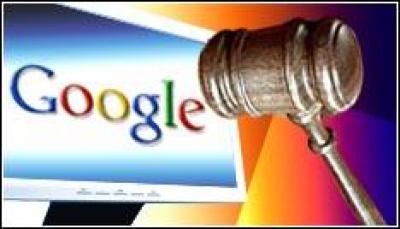

Eric Schmidt, Google’s former CEO and current executive chairman, is preparing to testify in an appearance before a US Senate antitrust subcommittee on Wednesday, 22 September.
Schmidt is to testify under oath about whether the company’s growing power and influence in search and the web at large, abuse antitrust laws and harm consumers.
Senate subcommittee Chairman Herb Kohl (D-Wisc.) and his colleagues will explore whether Google’s rise to power online – Google commands 65 percent of US search and 90 percent or more in several countries overseas – is good for consumer or bad for Google’s rivals.
The hearing, titled “The Power of Google: Serving Consumers or Threatening Competition?“, will include Schmidt on one panel and a quartet versus Google on the other panel.
Those panellists include: Susan Creighton, a partner for Wilson Sonsini Goodrich & Rosati, which is representing Google; Nextag CEO Jeff Katz; Thomas O. Barnett, a partner for Covington & Burling, and Yelp CEO Jeremy Stoppelman.
The hearing is significant on several levels. At a high level, Google is facing formal antitrust inquiries into it search ad business (and possibly, its Android mobile software unit) from the European Commission and the Federal Trade Commission in the US.
Search is, of course, Google’s biggest bullseye. Yelp’s Stoppelman, one of the e-commerce websites allegedly suffering under Google’s reign, has alleged often that Google has used Yelp’s content to profit even as it favoured its own Google Places local search product over Yelp on Google.com.
As a subtle acknowledgment of the problem it was causing Yelp, CitySearch and others, Google stopped using snippets of content those website on Places.
The heaviest hitter in opposition could be Barnett, who knows well how the game is played after running the antitrust division of the Justice Department from 2005 to 2008.
As counsel for Expedia and co-chair of FairSearch.org, Barnett often beseeched the Justice Department to halt Google’s $700 million (£445m) bid for travel search provider ITA Software, which the company bought in April this year.
Yet Google has also watched Android grow from zero in 2008 to 40 percent-plus market share through 2011 thus far. Android OEMs Samsung, HTC and Motorola are being sued by Apple for allegedly copying its iPhone and iPad patents for their own Android smartphones and tablet computers.
Google is itself being sued by Oraclefor patent and copyright infringement related to its use of Oracle-owned Java software in Android.
Schmidt provided some context for how he viewed Wednesday’s hearing, as well as how he will couch Google’s position in the market in an interview with ABC News 19 September.
Noting that Google wanted a “fast hearing of all of these issues,” Schmidt said he found it important the government was asking these questions in a democracy.
“From a Google perspective, we focus on the end user and, from my experience anyways, as long as we’ve stayed focus on the end user, we’ve stayed on the right side of these laws,” Schmidt said.
He added that Google won’t know for a long time what direction the hearing and cases will take, but said he was comfortable Google was in good shape.
American space agency prepares for testing of Boeing's Starliner, to ensure it has two space…
As UK and Europe develop closer military ties, European Commission says it will invest €1.3…
Zuckerberg seeks to revive Facebook's original spirit, as Meta launches Facebook Friends tab, so users…
Notable development for Meta, after appeal against 2021 WhatsApp privacy fine is backed by advisor…
First sign of shake-up under new CEO Lip-Bu Tan? Three Intel board members confirm they…
Trump's nominee for SEC Chairman, Paul Atkins, has pledged a “rational, coherent, and principled approach”…